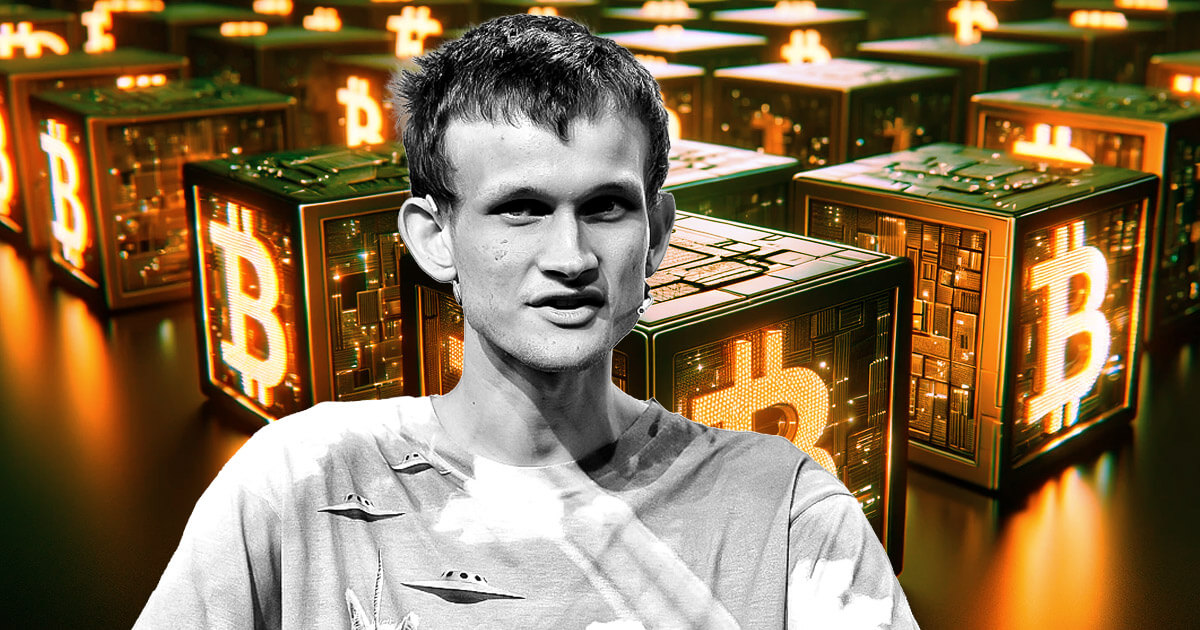
Vitalik Buterin, co-founder of Ethereum, has supplied an in depth reflection on the Bitcoin block dimension wars, a big battle inside the Bitcoin neighborhood that spanned from 2015 to 2017. This debate centered on whether or not to extend Bitcoin’s block dimension restrict from 1 MB to accommodate extra transactions, thereby lowering charges and enhancing its utility as a cost system.
Buterin, who skilled the block dimension conflict firsthand, initially aligned with the “massive blockers.” This group advocated for bigger blocks to maintain transaction charges low, sustaining Bitcoin’s function as digital money. They argued that Bitcoin’s authentic imaginative and prescient, as outlined in its whitepaper, was to function a peer-to-peer digital money system. Huge blockers believed rising the block dimension was important to stop excessive charges from undermining this use case. In addition they referenced Satoshi Nakamoto’s writings, which instructed that bigger blocks might be managed by way of simplified cost verification and arduous forks to section in block dimension will increase.
Conversely, the “small blockers” prioritized sustaining Bitcoin’s decentralization and safety. They argued that bigger blocks would make it tougher and expensive for people to run nodes, doubtlessly centralizing management amongst just a few massive entities. Small blockers had been involved that frequent and vital adjustments to the protocol, primarily by way of arduous forks, may undermine Bitcoin’s stability and governance mannequin. They believed that Bitcoin ought to stay a decentralized retailer of worth, akin to digital gold, quite than specializing in being a cost system.
Buterin’s reflections reveal a nuanced understanding of each side. He acknowledged that whereas he believed massive blockers had been proper about needing bigger blocks to maintain charges low, they usually lacked the technical competence to implement their options successfully. He criticized the massive blockers for not agreeing on sensible limits for block dimension will increase and for his or her technical missteps, such because the poorly executed Bitcoin Basic and Bitcoin Limitless initiatives. These initiatives had been marred by safety vulnerabilities and overly advanced implementations, in the end discrediting the massive block motion.
Alternatively, Buterin discovered the small blockers’ strategy to governance and protocol adjustments overly conservative. He disagreed with their inflexible stance in opposition to arduous forks and their reliance on comfortable forks, which he considered as unnecessarily advanced. He additionally criticized the small blockers for his or her alleged social media censorship and the exclusion of dissenting views, which stifled open debate inside the neighborhood.
In assessing the long-term implications, Buterin highlighted a recurring situation in political and organizational conflicts: the “one-sided competence entice,” the place one facet monopolizes competence however fails to think about broader views. This dynamic within the blocksize conflict hampers constructive dialogue and progress. “Good individuals need to work with different sensible individuals,” Buterin famous, stressing the significance of balanced and inclusive approaches to keep away from such traps.
Buterin additionally criticized the dearth of technological foresight within the debates, pointing to the absence of discussions on zero-knowledge proofs (ZK-SNARKs), which may have provided scalable options. “The final word diffuser of political pressure is just not compromise, however quite new expertise,” he asserted, advocating for continued innovation to handle scalability and governance challenges.
Reflecting on Ethereum’s improvement, Buterin famous how classes from Bitcoin’s block dimension wars knowledgeable Ethereum’s emphasis on shopper range and scalable layer 2 options. He emphasised the significance of studying from previous conflicts to construct extra resilient and pluralistic digital communities. “Ethereum’s specific try to foster a pluralistic ecosystem is essentially an try at avoiding one-sided competence traps,” he concluded, highlighting the worth of inclusive governance and technological development.
Buterin’s perspective highlights the broader implications of the block dimension conflict for the crypto neighborhood. He sees it as a cautionary story concerning the risks of one-sided competence traps, the place one faction monopolizes technical experience however pushes a slim agenda whereas the opposition fails to develop the mandatory expertise to implement its imaginative and prescient. This dynamic, he argues, can result in stagnation and inner battle.
In the end, Buterin believes that the decision of such conflicts lies in embracing new applied sciences that may tackle the considerations of each side. He factors to developments in ZK-SNARKs and different scalability options as potential methods to reconcile the necessity for low charges with the crucial of sustaining decentralization. By specializing in technological innovation, Buterin hopes that the crypto neighborhood can transfer past divisive debates and work in direction of extra inclusive and sensible options.
Buterin’s reflections on the Bitcoin block dimension wars emphasize the significance of balancing decentralization, technical competence, and modern options within the evolution of crypto ecosystems. His insights present an attention-grabbing lens by way of which to grasp the complexities of Bitcoin’s previous and the continuing challenges dealing with digital currencies.

